GSA Audit Support
GSA audit is an objective and unbiased review and assessment of GSA contractors’ activities. The purpose of GSA audits is to reveal any suspected violations of GSA contract terms, discover potential non-compliance with GSA regulations within contracting companies, their products and services being listed, and find out whether prices and conditions negotiated in the GSA contract are being met.


- Assistance during the GSA Office of Inspector General (OIG) Audit and GSA Contractor Assistance Visit (CAV)
- Rehearse each step of the anticipated audit
- Prepare documental proof and explanations for transactions that seem either out of place or non-compliant
- Instruct personnel in charge on how to successfully pass the inspectors’ interviews
- Review of documents to be submitted to the GSA OIG Audit team
with GSA
Awarded
Served
under
Management
Modifications
Completed
Processed
Rating
Contact us at 201.567.6646 or provide your details below for one hour free consultation
Who audits GSA contracts?
According to FAR 42.101(b), the Defense Contract Audit Agency (DCAA) has been designated to conduct audits of all contractors, other than educational institutions and nonprofit entities.
What does GSA OIG do?
The GSA OIG stands for The Office of Inspector General. The establishment of this organization goes back to the Inspector General Act of 1978 (Public Law 95-452). It is meant to oversee an economically efficient and effective process of program management by the General Services Administration. It investigates any potential fraud, corruption, and mishandling of various tasks and transactions.
What is a civilian auditor?
A civilian auditor is someone who ensures the openness and transparency within activities taking place on the governmental arena. These are often civilian activists and journalists, bringing to light potential infringement on the freedom of information, thereby preventing and ending potential violations that could negatively affect the American people. Some of the constitutional rights utilized by such auditors are the right to access and inspect public records.
What is GSA report?
GSA reports provide various data, with regards to the agency’s activity, that can be used to examine certain transactions, as well as the GSA’s general performance levels.
What is the difference between OIG and GSA?
The OIG has authority to investigate various transactions involving the GSA and GSA-approved vendors, and penalize accordingly, while the GSA manages federal procurement systems through the SAM database, but does not possess such an arbitrary authority. Moreover the OIG maintains a roster of individuals and organizations that are not eligible to participate in federal or state contracts due to criminal behavior or misconduct.
Price Reporter team has been efficient at managing our GSA contract catalogs for the past 5 years. They keep our catalogs well maintained and compliant, saving our resources and letting us focusing on making sales.
The B. David Company enlisted the services of Price Reporter, Inc. to setup our DOD EMALL account. We are a second generation family owned company and were uncertain what would be required to complete this task. I fully recommend Price Reporter, Inc. to any company that is looking for assistance with their Government business endeavors. They were and have continued to be extremely helpful. We will continue to rely on Price Reporter, Inc. for future projects.

Price Reporter recently helped us with our 3rd GSA contract, the 2nd they did with us. It was the fastest we’ve ever been through the process with GSA. Each step was easy because the ground work was done before we were asked to do anything. Our pricing verification phase went smooth and quickly and both our contracts were accepted without rejection, with minimal negotiations with contracting.

We first learned about the DOD EMALL a couple years ago from Price Reporter. We decided to move forward on it in 2016. I would recommend them based on the following items:
- They split the payment. Half upfront and the other half is only charged should DOD EMALL contract be awarded to you.
- Adding Price Reporter, specifically Andrey Karpov and Igor London, as agents on our GSA schedule streamlined the process. They were able to communicate with our GSA Contracting Officer to ensure that we received what we needed for DOD EMALL from GSA. This saved time on my end and sped up the process.
- They provide a list of everything you need. Andrey and the rest of his team are meticulous and understand the process on how to get a DOD EMALL contract and thus we benefited from their expertise.
These are a few of the reasons why I would recommend Price Reporter, Inc. Thank you!
Since 2009, Price Reporter has provided Fisher Scientific timely competitive item level GSA pricing data allowing us to identify opportunities and threats. Their customer service focus is solid.
Price Reporter are helping make my life much easier and helping me feel so much better about our GSA contract. Thanks!!!

For the past 10 years, Price Reporter has been providing us with exceptional service for the maintaining of our GSA office supplies contract. They have updated our files on a very timely basis. They have provided modifications when required. For a number of years, they had been giving us a price algorithm where each of our items were priced more than our cost and a penny below the next competitor. A very unique position that gave us thousands of government orders – that was prior to the GSA FSSI BPA.
And for all the service given, their cost was far less than any other consulting firm that we had contacted or worked with over the years.
I would highly recommend their service to any small business that is either interested in getting into the federal government arena or who wants to have their contract maintained at a most highly professional level.
Thank you for supporting a VETERAN OWNED SMALL BUSINESS.
We looked around for a reputable company to help us acquire a GSA contract for Muzeek World Intl., Inc. After looking around we were unsuccessful in finding a good company. By chance, one of our colleagues recommended Price Reporter, Inc., so we called them up. I highly recommend Price Reporter to anyone looking for help in acquiring a GSA contract or any Government business dealings. They have the expertise and the know-how to get the work completed.
We have used Price Reporter for various services over the past 5 years and have been very happy with the services they have provided and continue to provide for us. They work hard to help you get the most from your GSA Schedule and are able to adapt and customize to what your particular needs are. I highly recommend their services to others with GSA Schedules as they help you maximize your sales

We are extremely grateful for all your help in guiding us through the whole process, as this was all new to us. Without the help of you and the rest of the team at Price Reporter, it would have been impossible to achieve our approval – or at the very least – it would have taken a very long time. I would not hesitate to highly recommend Price Reporter, Inc. to anyone needing assistance in government contracts. Your knowledge and assistance was invaluable and very much appreciated, and we look forward to a continued excellent relationship.
Without Price Reporter contacting me at the right time, GSA would probably cancel my contract already. The CO said that she contacted us back in November of 2016, but got no response. Then Price Reporter called me and helped me with all the things needed and I followed his advise. That’s how we found out that our contract will be terminated soon, but had enough time to take the corrective action. The CO called us recently and it looks like they will extend our contract life. Thanks so much for your timely follow up – Price Reporter gave our Government sales a new hope!

My company STEC-STEADFAST TECHNICS have worked with 2 IT companies before we linked up with PRICE REPORTER ,INC over 5 years ago. Ever since our relationship with the company, there is no reason to stop working with them.
The company is staffed with experienced and high Tech professionals who meet our needs adequately.


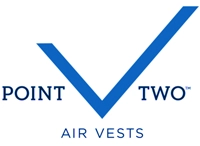
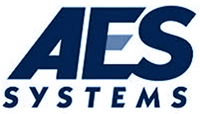
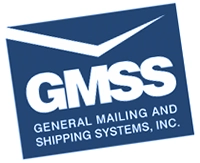

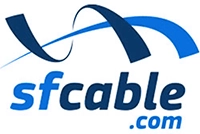


















WHAT IS GSA AUDIT
GSA audit is an objective and unbiased review and assessment of GSA contractors’ activities. The purpose of GSA audits is to reveal any suspected violations of GSA contract terms, discover potential noncompliance to GSA regulations within contracting companies and listed products, and find out whether prices and conditions negotiated in the GSA contract are still being met.
Price Reporter provides an all-around GSA Audit Support to help you successfully pass the audit and mitigate any associated risks. Our seasoned experts deliver complete coverage, so you can safely navigate through a pre- or post-award GSA OIG Audit or a Contractor Assistance Visit.
What is GSA Audit
GSA audit is an objective and unbiased review and assessment of GSA contractors’ activities. The purpose of GSA audits is to reveal any suspected violations of GSA contract terms, discover potential noncompliance to GSA regulations within contracting companies and listed products, and find out whether prices and conditions negotiated in the GSA contract are still being met.
- GSA Office of Inspector General (OIG) Audit
- GSA Contractor Assistance Visit (CAV)
Let’s take a close look at each type of GSA audit to see what they are, and what support you may need.
1. GSA OIG Audit Support
The Office of Inspector General helps GSA manage the taxpayer’s money efficiently, by ensuring effectiveness and economy, while preventing fraud and ineffective expenditure of the federal budget. One of the ways OIG accomplishes this is a GSA OIG Audit.
GSA Contract OIG Audits
- Overbilling. A common example is overbilling due to inadequate labor rates or overstated qualification of employees.
- Overpricing. The rule of thumb is that GSA prices must be lower than the commercial prices, so if the commercial price goes down, but the GSA price does not, the contract becomes non-compliant.
- Inaccurate Commercial Sales Practices. CSP Information must be complete and accurate.
- TAA incompliance. At least 50% of the monetary value of your products must originate from the U.S. or the designated countries.
- GSA Schedule sales reporting issues. As a GSA contractor you must report sales regularly.
- Industrial Funding Fee reporting issues.
The above non-compliances may result in unwanted consequences for your GSA contract, such as refunds, price reductions, change in the award basis, and even complete cancellation of the contract.
How often does GSA OIG Audit occur?
GSA OIG Audits are rare, but exactly how rare? In our experience, GSA OIG conducts approximately 40-50 pre-award audits annually. Larger volumes of sales within the GSA Schedule contract increase chances of an audit. Also, OIG audits may be initiated by the GSA in case there is either some suspicion or a particular cause for such an audit. However, the majority of OIG checks are just random, which means any contractor can face one sooner or later.
As a result, GSA OIG Audit support is highly demanded among GSA contractors who wish to ensure compliance and long-term stability of their GSA Schedule contracts.
How GSA OIG Audit is conducted
The OIG audit involves examination of contractor’s transactions, financial statements, regulatory documents and assessment of internal controls. Also, a GSA OIG inspector may interview any employee at your company that happens to be in charge of such matters.
- Sales transaction data, such as customer, contract number, invoice number, price, quantity etc.
- Any books, papers, documents and records justifying transactions within the given GSA Schedule contract.
- Commercial and GSA pricelists.
- GSA sales reports.
- Up to 12 months of previous sales data.
- List of your major non-GSA clients.
- Identification of the basis of award customer.
- Price Reductions and discounts.
- Written policies and procedures on sales reporting, processing of orders, commercial practices and so on.
- Labor rates and categories.
Overall, the process of an OIG Audit involves several steps. At first, an auditor gathers all the required information (see above), either through electronic channels or directly. The data for analysis also include prior OIG reports, if any. Among the entire volume of data, the auditor chooses a sample of transactions for in-depth analysis. For this sample, additional information may be requested.
Then, within a week or so a site visit is scheduled. The inspector visits the facilities and offices of the company, interviews officials, provides questionnaires, gathers computer data, and so on.
The final stage is analysis of the data. The result of this stage is an OIG Audit report that incorporates problems the audit team has revealed and recommendations to fix them.
Note, however, most of the issues can be fixed preliminarily if you order a GSA OIG Audit support.
Get Expert Help to Successfully Navigate Your GSA OIG Audit
Price Reporter offers full-service GSA OIG Audit support to businesses. We help you get ready for the audit, passing it without risks, or minimizing negative consequences of the audit if there would be any.
- rehearse each step of the anticipated audit to make sure the personnel understand the entire process and know what to do;
- help you recognize exactly the bottle-necks that can potentially lead to penalties;
- prepare documental proofs and explanations for transactions that seem out of place or non-compliant;
- instruct personnel in charge how to successfully pass interviews with the inspector;
- prepare ready-to-use scripts and response templates, to properly answer to the inspector’s questions and fill-in questionnaires correctly;
- thoroughly review documents to be submitted to GSA OIG Audit team;
- attend on-site OIG Audit inspections and offer support during them.
Also, our experts will participate in pre-audit meetings with the GSA OIG to help you arrange the most convenient timing and scope of the audit, as well as to help you establish good relationships with the inspector.
GSA CONTRACTOR ASSESSMENT VISIT SUPPORT (IOA / CAV)
What is the GSA Schedule Audit?
Unlike GSA OIG Audits, the GSA conducts Virtual Annual Assessment for all GSA Contract Holders. During these assessments the Contracting officer conducts in-depth analysis of contractor’s business operations, in order to determine contractor’s compliance with GSA regulations and identify areas of improvement if any issues are found, with further verifications.
What is the purpose of the GSA Schedule Audit?
The purpose of Contractor Assessment is to inform GSA contractors about potential weaknesses in their contracting processes that can further lead to non-compliance or violation of GSA regulations, and to help them address these problems.
One of the main areas of concern for the Contracting Officer is confirming that the contractor is maintaining the Basis of Award (BOA), which means that the government is receiving the promised discounts in comparison to commercial or most favored customers (MFC). The contractor is responsible to maintain the negotiated relationships and if any changes occur, the contractor must perform a modification to rectify the difference created.
For example if Contractor promised GSA 10% discount from the commercial price of $100 per unit, then GSA price should be $90, and if the commercial price goes down to $70 later in time, then the contractor should also reduce their GSA price down to $63 instead of $90 negotiated originally. Otherwise the contractor must pay the difference in fines per each item overcharged.
How Contractor Assessment Visits are conducted
The assessment starts with the Industrial Operations Analyst assigned to your contract contacting you by e-mail with the notification about the upcoming CAV and the list of required documents to assess. The email will also preliminarily schedule the date of the actual visit. Contractors are required to provide all requested documents and reports.
Then, the GSA contracting officer (CO) will analyze all documents provided by the contractor, and schedule a time to review everything on video conference call with screen sharing. During the call, GSA CO will go over all their findings and ask any questions they may have remaining, to provide the contractor with an opportunity to explain the issue, before including it in the annual report to be resolved in the future.
After the video conference call is complete, the contracting officer will evaluate their findings once again, and issue an assessment report with their score and applicable notes, with recommendation for improvement.
- Basis of Award (BOA) Compliance
- Pricing compliance
- Trade Agreements Act Compliance
- Sales Reporting/IFF Payment
- Additional Discount Adherence (prompt payment, volume, etc. if applicable)
- Labor Category Qualifications Compliance (if applicable)
- Adherence to established delivery terms
The report will be ready in a week or two after the CAV. Usually a contracting officer will also assign a timeframe for the contractor to correct the issues found, or otherwise they will be reviewed in the next assessment.
How frequent CAVs are?
Before 2014, Contractor Assistance Visits were conducted at least twice for each GSA contract holder: first time assessment was scheduled between 12 months and 18 months of the contract term, and the second one was typically scheduled about 12-18 months before the end of the contract.
- How much revenue a GSA contractor generates. A threshold of $150,000 in revenue triggers annual assessments.
- Complaints or suspicions of GSA regulation violations.
- Previous assessment compliance issues.
- “Problematic” Schedules or historical issues with similar vendors.
GSA Schedule Audit Support
Price Reporter offers GSA Schedule Audit support. While CAV has no subpoena power and thus may not seem so menacing in comparison to OIG Audit, we still recommend taking it very seriously. The Contractor Assessment Visit is here to assist you in eliminating any potential problems that your company as a GSA Contractor may be experiencing, so you should not wait until these potential issues become real violations of GSA Schedule contract regulations.
- Price Reporter helps you efficiently prepare for upcoming CAV by reviewing the documents IOA will be most likely interested in.
- We will train you to set up procedures and processes, so as to avoid potential problems after a GSA Schedule audit.
- Our specialists will assess your commercial and GSA pricelists to point out potentially dangerous places that may look suspicious to the IOA.
- Rehearsal of videoconferencing calls will help you prepare yourself for online assessment.
Overall, our engagement in the GSA Schedule Audit process mitigates risks during GSA Schedule Contractor Assessment Visits or Virtual Assessment, while serving the best interests of your company.
Even though CAV is not technically an audit, and it does not have any subpoena power, if you are not prepared well for this process, you may end up with an adverse report that may affect the renewal eligibility of your GSA contract in the future. That is why paying attention to the GSA Contract Assessment is crucial, and Price Reporter is right here to guide you through the entire process.
Contact Price Reporter now for GSA Schedule Audit Support
Whether it is an OIG Audit, a Contractor Assessment Visit or a Virtual Annual Assessment, Price Reporter’s experience and expertise are at your service. If you need assistance on how to instruct your team and prepare required documents for a forthcoming contract assessment or an Office of Inspector General Audit, please don’t hesitate to contact us.


